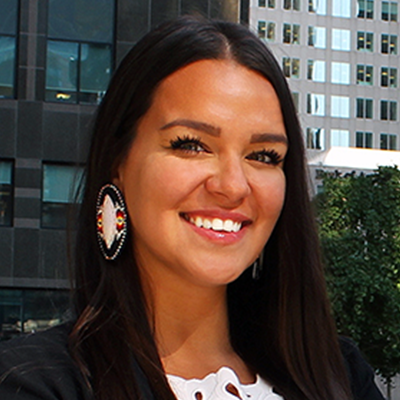This past year, on more than one occasion, Canadians were faced with the harsh reality of the ongoing impacts of settler colonialism. From the discovery of mass graves of countless residential school children to the ongoing lack of access to safe drinking water for First Nations communities, the manifestations of systemic injustices are many and varied. Along with sobering evidence illustrating the extent of such historical and present oppression, came a moment for reflection, for pause and for kickstarting personal and professional development in directions that enable us to collectively learn from past and present injustices.
Inequities that existed long before the pandemic have become exacerbated over the last two-years – systemic racism, inter-generational trauma, poverty, inequitable access to education and health care, gendered violence and ableist societal structures are only some of the rampant concerns that have come to the forefront. Unfortunately, the professional world is not immune to these issues and as many seek to meaningfully address them, specific training is needed for HR professionals.
In light of this, Indigenizing workplaces is of utmost importance – this means recognizing Indigenous perspectives as valid and facilitating the expression of Indigeneity, for instance, by incorporating Indigenous ways of knowing and doing. At its core, Indigenization calls for awareness amongst non-Indigenous people about Indigenous worldviews and understanding that those worldviews are equal to other views. [Footnote 1]
Learn about Indigenization at the Deconstruction Micro-Conference – February 8, 2022
Operating in this landscape, HRPA marked the first National Day for Truth and Reconciliation on September 30, 2021, with a renewed focus on, and commitment to, incorporating learnings around Indigenization in the programming we offer. In particular, there is a long-standing yet urgent need to cultivate environments wherein talent from First Nations, Inuit and Métis communities can thrive. This gap, evident across industries, is one that the upcoming half-day micro-conference on ‘Deconstruction: Crafting Inclusive and Equitable Workplaces’ taking place February 8, will tackle head on.

Shedding light on the need to deconstruct the world of work and start from scratch, this micro-conference focuses on Indigenous perspectives and lived experiences within and beyond the HR profession. Featuring leading experts, the micro-conference offers a platform for HR and business leaders to learn about the various issues and challenges facing Indigenous communities, including how this translates to employment and the workplace. Attendees will also be encouraged to reflect on the short- and longer-term initiatives they can lead or participate in that can have real impact and make progress on Indigenizing communities. Attendees will also walk away with concrete tools, resources and strategies to integrate Indigenous teachings and perspectives within workplaces. Finally, the micro-conference will enable participants to reflect on their key takeaways and share them with colleagues, to facilitate peer-to-peer learning.
The Role of HR in Indigenizing Workplaces
Becoming familiar with Indigenous teachings, learning how to balance these with Western knowledge systems and recognizing how both may overlap and diverge is vital for creating work environments that are inclusive and equitable for all. This is the key to understanding Indigenous history, current priorities and the future(s) envisioned. In this context, HR professionals are best positioned to begin and sustain meaningful dialogue and actions, and foster connections while embracing Indigenous cultures to help strengthen workplaces.
So, how can HR play a role in Indigenization? For one, HR professionals tasked with leading or executing workplace diversity, equity, inclusion and Indigenization initiatives are in the right place and at the right time to take this on. Also, those involved with talent attraction and retention and organizational and policy development have an integral role to play in systemic approaches to addressing the systemic barriers Indigenous Peoples continue to face in employment. Ultimately, HR leaders whose portfolio includes addressing employee well-being, engagement and leadership will also find that Indigenizing workplaces is crucial for nurturing a sense of belonging amongst employees.
Looking to the Future
While the first, critical step is to raise awareness of the various issues that matter in Indigenous communities, it is just as important to use this knowledge to implement effective recruitment and retention strategies that attract and sustainably engage with Indigenous talent in the long run. These insights would ideally culminate in a deeper understanding of Indigenization and how this is the path forward to building stronger, more resilient communities.
Footnotes:
Footnote 1: Definition derived from: https://www.ictinc.ca/blog/a-brief-definition-of-decolonization-and-indigenization
